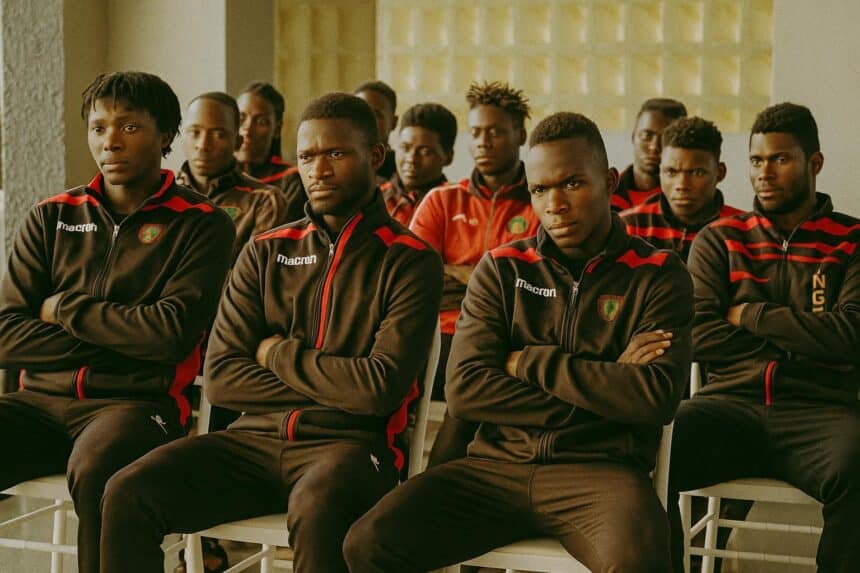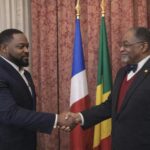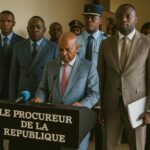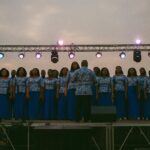A secluded valley chosen for sporting focus
Thick mist drifts above the Lefini River at dawn, veiling the red-tiled roofs of the Ignié technical centre that now hosts Congo-Brazzaville’s home-based national team. The decision, confirmed on 19 July by Fédération congolaise de football president Jean-Guy Blaise Mayolas, moves the Diables-Rouges A’ away from Brazzaville’s urban distractions toward a quieter, high-altitude environment regarded by conditioning coaches as ideal for endurance work (Fécofoot communiqué, 19 July 2023). The retreat is part of a broader tactical preparation for the 2024 African Nations Championship, a tournament limited to domestic-league players and therefore perceived in many African capitals as a barometer of the depth of national sporting ecosystems.
Harmonising administration and competitive ambition
Mayolas’s visit, the first since the federation’s executive committee reinstalled itself in its refurbished headquarters, carried a twofold message: discipline on the pitch and probity off it. In past cycles, administrative bottlenecks—ranging from visa delays to erratic bonus disbursements—have blunted otherwise promising campaigns. The federation now pledges streamlined logistics and a single payment platform for allowances, a reform designed to align with recent guidance from the Ministry of Sports on financial transparency (Ministry of Sports press briefing, 18 July 2023). By signalling that bureaucratic turbulence will no longer derail performance, officials hope to free the technical staff to think solely in terms of tactics and psychology.
Infrastructure as an emblem of state commitment
The Ignié facility itself has become a diplomatic calling card. Originally funded under a tripartite arrangement between the Congolese state, FIFA’s Forward programme and private telecommunications sponsors, its renovation answers a regional race for modern training bases. Neighbouring Cameroon’s sports complex in Mbankomo set a precedent during the last CHAN, and Gabon has recently broken ground on a similar project near Libreville. Officials in Brazzaville argue that upgraded dormitories, hydrotherapy pools and VAR-compatible training pitches demonstrate the Republic’s readiness to host sub-regional qualifiers in the future, an ambition that dovetails with the government’s broader strategy to present Congo as a logistical hub between Central and Southern Africa (Agence Congolaise d’Information, 22 July 2023).
Regional dynamics and the quest for continental stature
Beyond the touchline, participation in the CHAN feeds directly into Congo’s soft-power calculus. The tournament, organised by the Confederation of African Football, attracts emissaries from Asian and Gulf leagues scouting for emerging talent, thus entwining sport with labour mobility and remittance flows. Moreover, a credible performance can bolster Brazzaville’s voice within regional blocs such as ECCAS, where informal sporting diplomacy often lubricates security and economic negotiations. In 2018, Congo’s surprise quarter-final run in Morocco coincided with renewed bilateral talks with Rabat on energy cooperation, an alignment diplomats still cite as an example of agenda-linkages made possible by sporting visibility (Confederation of African Football announcement, June 2023).
National cohesion through collective ritual
Inside the camp, head coach Jean-Élie Ngoya references the 1974 Zaire squad as a cautionary tale of talent undermined by off-field discord. Consequently, morning sessions now begin with discussions led by sociologists from Marien-Ngouabi University on team identity and civic duty, an innovation financed by the Ministry of Higher Education’s outreach fund. While such exercises may appear ancillary, they resonate with a domestic public that has in recent months sought symbols of unity amid economic headwinds. State broadcasters are already planning daily segments from Ignié, betting that disciplined images of the Diables-Rouges will offer a unifying storyline during the run-up to Independence Day celebrations.
Measured optimism ahead of the final list
With the provisional squad trimmed from forty-two to twenty-six, competition for the remaining slots is intense. Veteran midfielder Dimitri Bissiki remarks that “the tranquillity here forces us to confront our own standards,” a sentiment echoed by medical staff who report improved sleep cycles since the relocation. Yet caution tempers optimism: Congo shares a qualifying group with the Democratic Republic of Congo and the rising Angolan side, both tactically astute and physically resilient. A friendly against Rwanda scheduled for late August will offer the first external test of Ignié’s regimented isolation.
For now, the silence of the Lefini Valley serves as both canvas and crucible. Whether the Diables-Rouges can translate controlled preparation into competitive ascendancy will be revealed only in the unforgiving theatre of the CHAN. Still, the convergence of infrastructural investment, administrative reform and calibrated state backing suggests that the squad will travel to the tournament inoculated, at least in part, against the avoidable distractions that have haunted previous expeditions. In the measured words of a senior official at Fécofoot, “we no longer improvise; we anticipate.”



















